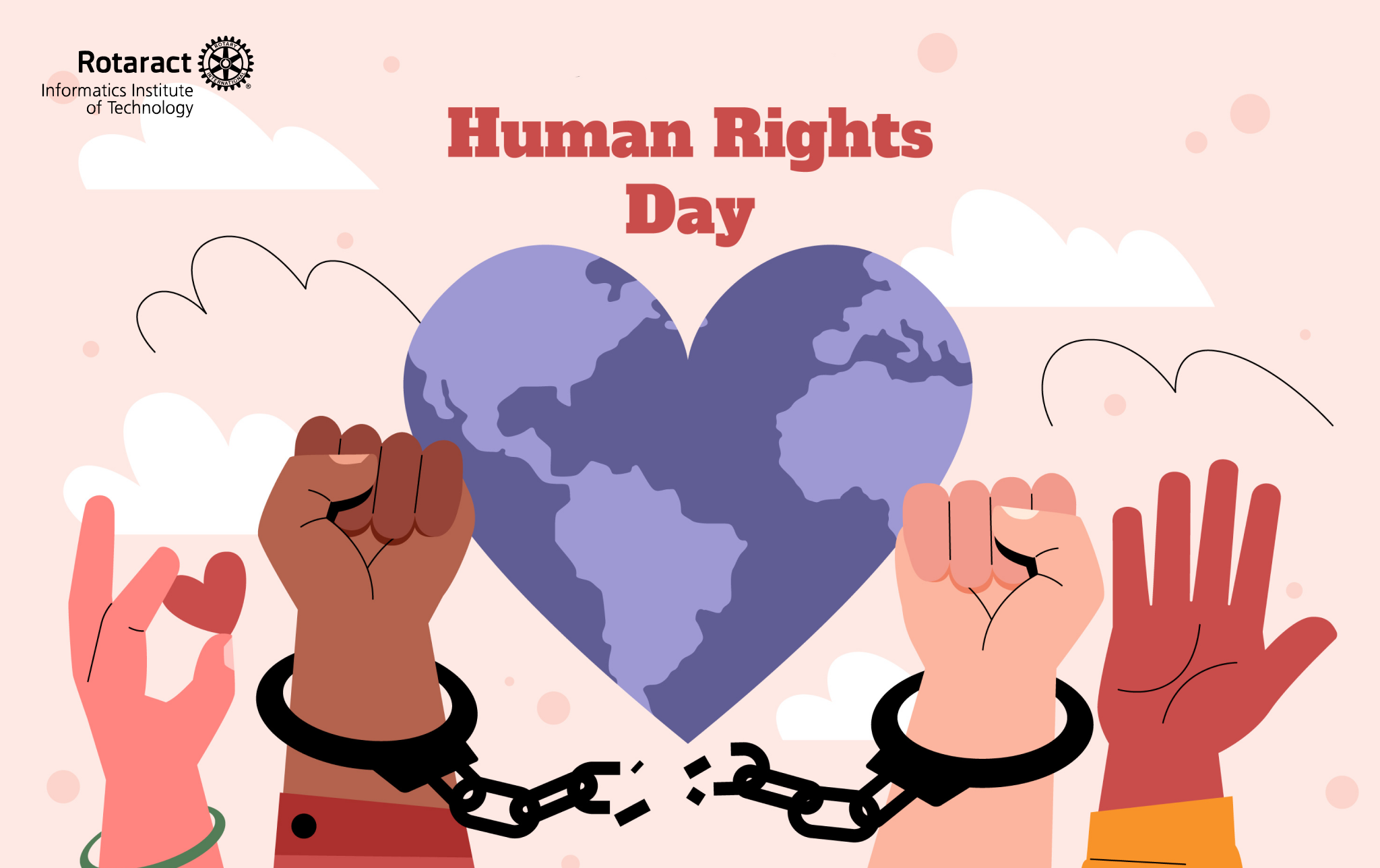
Standing Together for Justice: Reflecting on Human Rights Day
Human Rights Day, celebrated annually on December 10, is a day to honor the inherent dignity and equal rights of all people. This date commemorates the adoption of the Universal Declaration of Human Rights (UDHR) in 1948 by the United Nations General Assembly—a landmark document that proclaimed fundamental freedoms and rights for every individual, regardless of race, color, religion, gender, language, political beliefs, or nationality.
Over seven decades later, the UDHR remains as relevant as ever, serving as both a beacon of hope and a call to action. Human Rights Day is not just about remembering this milestone but also about assessing where we stand today and recommitting to the universal principles of equality, justice, and freedom.
The UDHR was born in the aftermath of World War II, at a time when the world was reeling from atrocities that highlighted humanity's capacity for both destruction and resilience. It was a collective declaration by nations that such horrors must never happen again. With its 30 articles outlining civil, political, economic, social, and cultural rights, the UDHR became a cornerstone of international human rights law.
Yet, as we mark Human Rights Day, it is clear that many of these rights are under threat. In every corner of the world, people are denied access to basic freedoms, stripped of their dignity, and forced to live under oppression. From poverty and inequality to systemic racism, authoritarian regimes, and the suppression of free speech, challenges to human rights are as pressing today as they were in 1948.
Human Rights Day is a reminder that these issues are not distant or abstract; they are deeply personal. They affect the refugee fleeing war, the woman fighting for equal pay, the child denied access to education, the activist silenced for speaking out, and the countless others whose stories often go unheard.
While progress has been made, there is still much to do. Around the world, millions are trapped in cycles of poverty, discrimination, and violence. Marginalized groups, including indigenous peoples, LGBTQ+ individuals, migrants, and women, continue to face systemic barriers to equality. The COVID-19 pandemic further exposed deep inequities, with vulnerable populations disproportionately affected by health, economic, and social crises.
Addressing these challenges requires collective effort and sustained commitment. Governments must be held accountable for upholding the rights of their citizens. Civil society organizations must continue their advocacy, and individuals must use their voices to speak out against injustice. Human rights are not just the responsibility of policymakers; they are the responsibility of all of us.
At its core, Human Rights Day is about solidarity. It’s about recognizing that injustice anywhere is a threat to justice everywhere. It’s about standing up for those whose voices have been silenced and amplifying the calls for freedom, equality, and justice.
The fight for human rights is not a distant battle fought by strangers; it’s a fight that touches every aspect of our lives. When we advocate for education, we are advocating for human rights. When we demand action on climate change, we are defending the rights of future generations. When we challenge discrimination, we are standing up for the dignity of all people.
Human Rights Day also reminds us of the incredible courage and resilience of those who have risked everything to fight for justice. From historical figures like Nelson Mandela and Malala Yousafzai to everyday heroes in our communities, these individuals remind us that change is possible when we refuse to stay silent in the face of oppression.
The day is also a celebration of diversity. The world is a richer, more vibrant place because of our differences. Embracing this diversity is not just a matter of tolerance; it’s a recognition of our shared humanity. It’s understanding that while our experiences may vary, our rights do not.

Education plays a pivotal role in advancing human rights. By teaching the principles of equality, freedom, and dignity from an early age, we can foster a culture of respect and empathy. Schools and communities must work together to ensure that future generations understand the importance of standing up for their rights and the rights of others. Technology and social media have also emerged as powerful tools in the fight for human rights. From mobilizing protests to shedding light on injustices, digital platforms have given people a global stage to demand change. However, they have also been used to spread hate and misinformation, highlighting the need for responsible use and regulation.
As we commemorate Human Rights Day, let’s remember that the struggle for equality and justice is ongoing. It’s a journey that requires persistence, courage, and unity. Each one of us has a role to play—whether it’s speaking out against discrimination, supporting organizations that champion human rights, or simply treating others with kindness and respect.
On December 10, let’s not just reflect on the ideals enshrined in the UDHR; let’s act on them. Let’s work toward a world where dignity, freedom, and justice are not privileges for a few but rights for all. Together, we can create a future where the principles of Human Rights Day are woven into the fabric of everyday life—a future where everyone, everywhere, can live with dignity and hope.
As we stand together on this day, let us honor those who fought for the rights we enjoy and remember those whose rights are still denied. Human rights are not just words on paper; they are the foundation of a just and peaceful society. By embracing our shared humanity and acting with compassion, we can continue to build a world where equality and justice are not just aspirations but realities.






